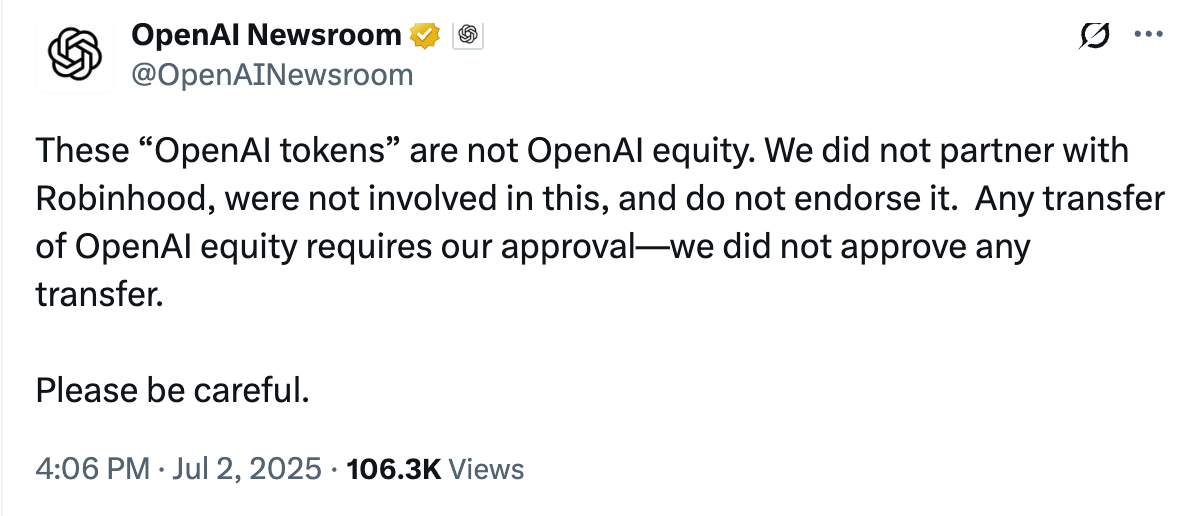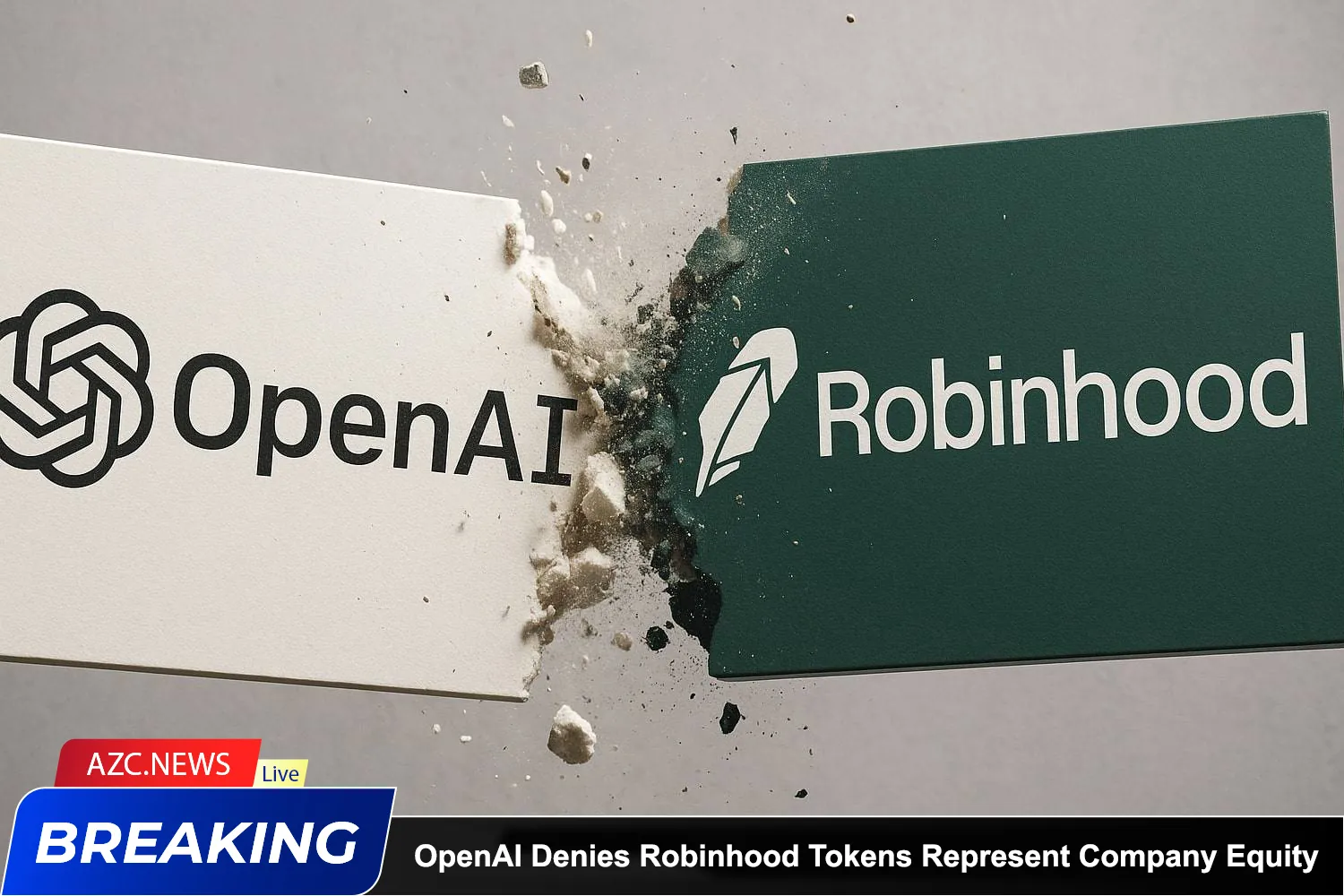Recently, OpenAI issued a strong statement denying that the tokens bearing its name—distributed by trading platform Robinhood in the EU—represent actual equity in the company. “We are not involved in this and do not endorse it. Any transfer of OpenAI equity requires our approval — and no such approval was given. Please be cautious,” OpenAI representatives stated.
The clarification came days after Robinhood gave out $5 worth of OpenAI and SpaceX tokens to EU users, part of its broader push into tokenized stock trading. According to Robinhood, these giveaways are intended to provide retail investors with indirect exposure to private markets, enabled through the company’s stake in a special purpose vehicle (SPV).

In response, Elon Musk—co-founder of both OpenAI and SpaceX—lashed out at the move. “Your ‘equity’ is fake,” he wrote on social media platform X. Musk, who left OpenAI’s board in 2018, has frequently criticized the company for shifting away from its original nonprofit mission toward a profit-driven model. He is currently suing OpenAI, accusing it of misusing charitable assets for private gain.
Meanwhile, Robinhood is aggressively expanding into tokenized real-world assets. The company recently launched a layer-2 blockchain network to facilitate the settlement of these trades. Speaking at Consensus 2025 in Toronto, Robinhood Crypto executive Johann Kerbrat said that integrating real-world assets on-chain promotes financial inclusion.
Robinhood’s strategy reflects a broader trend across the crypto industry: integrating traditional financial assets—such as tokenized stocks, government bonds, and commercial real estate—into digital platforms. By leveraging asset fractionalization, the company aims to democratize access to investment opportunities historically reserved for the wealthy, including private equity and private credit markets.
These asset classes are typically limited to accredited investors with over $1 million in investable assets or those meeting specific income and licensing thresholds in the US and EU. Robinhood’s new offerings aim to break down those barriers.
Speaking at an event in Cannes earlier this week, Robinhood CEO Vlad Tenev declared: “Crypto is much more than a speculative asset—it has the potential to become the backbone of the global financial system.”






